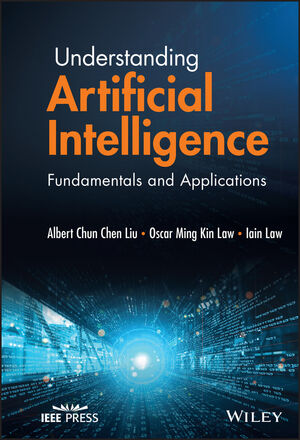Artificial Intelligence (AI) is rapidly transforming our world, moving from science fiction concepts to tangible realities that impact nearly every aspect of our lives. At its core, artificial intelligence refers to the ability of machines to mimic human cognitive functions such as learning, problem-solving, and decision-making. This involves developing computer systems capable of performing tasks that typically require human intelligence, often through complex algorithms and vast datasets. Understanding the core principles of artificial intelligence is becoming increasingly crucial for navigating the modern technological landscape, as its applications continue to expand and reshape industries.
Defining Artificial Intelligence
Defining AI precisely can be challenging, as the field is constantly evolving. However, a common understanding is that AI encompasses the following key elements:
- Learning: The ability to acquire and integrate new knowledge and skills. This often involves machine learning algorithms that allow systems to improve their performance over time without explicit programming.
- Reasoning: The capacity to draw inferences, solve problems, and make decisions based on available information.
- Perception: The ability to interpret sensory inputs, such as images, sounds, and text, to understand the surrounding environment.
- Natural Language Processing (NLP): The capability to understand and generate human language, enabling machines to communicate with people in a natural and intuitive way.
Key Features of Artificial Intelligence
AI systems possess several defining features that distinguish them from traditional computer programs:
- Adaptability: AI systems can adapt to changing environments and learn from new experiences.
- Automation: AI can automate repetitive tasks, freeing up human workers to focus on more creative and strategic activities.
- Data Analysis: AI excels at analyzing large datasets to identify patterns, trends, and insights that would be impossible for humans to detect.
- Decision-Making: AI can make decisions based on data analysis and pre-programmed rules, often with greater speed and accuracy than humans.
Uses of Artificial Intelligence
The applications of AI are vast and diverse, spanning numerous industries and domains. Here are just a few examples:
- Healthcare: AI is used for disease diagnosis, drug discovery, personalized medicine, and robotic surgery.
- Finance: AI powers fraud detection systems, algorithmic trading platforms, and personalized financial advice.
- Manufacturing: AI optimizes production processes, predicts equipment failures, and controls robots on the factory floor.
- Transportation: AI drives autonomous vehicles, optimizes traffic flow, and manages logistics operations.
- Customer Service: AI powers chatbots and virtual assistants that provide instant customer support and resolve inquiries.
One area where AI is making significant strides is in the development of personalized learning experiences. By analyzing student data, AI can tailor educational content and pacing to individual needs, improving learning outcomes and engagement.
FAQ about Artificial Intelligence
What are the different types of AI?
AI can be broadly classified into narrow or weak AI (designed for specific tasks), general or strong AI (possessing human-level intelligence), and super AI (exceeding human intelligence);
How does machine learning relate to AI?
Machine learning is a subset of AI that focuses on enabling systems to learn from data without explicit programming.
What are the ethical concerns surrounding AI?
Ethical concerns include bias in algorithms, job displacement, privacy violations, and the potential for misuse of AI technology.
Is AI going to replace humans?
While AI will automate many tasks, it is unlikely to completely replace humans. Instead, it is more likely to augment human capabilities and create new opportunities.
The Future of Artificial Intelligence
Looking ahead, the future of artificial intelligence is bright with potential. As AI technology continues to advance, we can expect to see even more innovative applications emerge, transforming our world in profound ways. From personalized healthcare to sustainable energy solutions, AI has the potential to address some of the world’s most pressing challenges.

